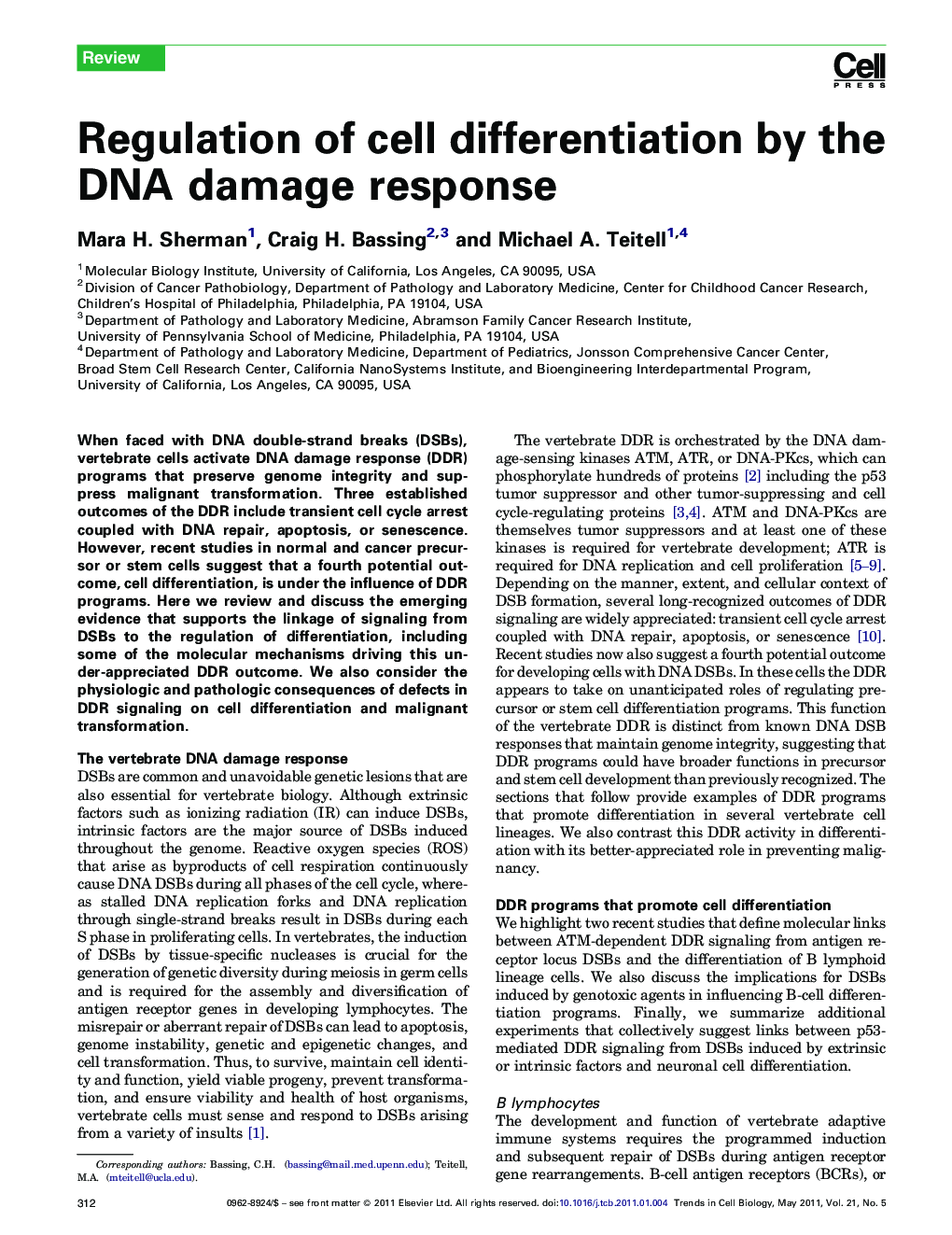| Article ID | Journal | Published Year | Pages | File Type |
|---|---|---|---|---|
| 2204679 | Trends in Cell Biology | 2011 | 8 Pages |
When faced with DNA double-strand breaks (DSBs), vertebrate cells activate DNA damage response (DDR) programs that preserve genome integrity and suppress malignant transformation. Three established outcomes of the DDR include transient cell cycle arrest coupled with DNA repair, apoptosis, or senescence. However, recent studies in normal and cancer precursor or stem cells suggest that a fourth potential outcome, cell differentiation, is under the influence of DDR programs. Here we review and discuss the emerging evidence that supports the linkage of signaling from DSBs to the regulation of differentiation, including some of the molecular mechanisms driving this under-appreciated DDR outcome. We also consider the physiologic and pathologic consequences of defects in DDR signaling on cell differentiation and malignant transformation.
